
US Treasury official explains three-pronged approach in Biden’s ‘first tranche’ of measures against Russia

US treasury official details sanctions on Russia
From CNN’s Betsy Klein
US Deputy Treasury Secretary Wally Adeyemo outlined Tuesday’s sanctions announcement Wednesday morning, detailing the Biden administration’s three-pronged approach.
“The sanctions that we imposed were significant actions that had an impact on Russia in multiple ways,” Adeyemo said during a brief appearance on MSNBC.
US President Joe Biden on Tuesday laid out what he called a “first tranche” of US sanctions against Russia, including on two large financial institutions, Russian sovereign debt and Russian elites and their family members.
- On banks: “The banks that we went after one of them was critical to [Russia President] Vladimir Putin’s ability to project power within Russia. It’s money they use to pay the Kremlin used to pay for things within the country. The second bank was critical to their defense industry and their ability to project power outside of Russia. We’ve cut those banks off from the US financial system, and today their assets are frozen because of the actions that we took,” Adeyemo said.
- On individuals: “We cut off Russian elites. These elites are close to the Kremlin and close to Putin. And the reality is that Vladimir Putin gains a great deal of his wealth from taking money from these elites and from the Russian economy. So like cutting off these individuals and their children, we cut off the ability for Vladimir Putin to use their resources to further his lifestyle.”
- On debt: “The action we took to cut off sovereign debt means that over time, Russia’s economy will be starved for the resources they need to project power within the region and around the world.”
Echoing Biden’s remarks yesterday, Adeyemo acknowledged that there will be some costs to Americans, including at the gas pump.
“What the President has told us is to take actions that will severely impact the Russian economy and to mitigate the impact on the US and Europe, which we have which we have done, but there will be costs and our goal will be to make sure that we mitigate those costs over time,” he said.
Pressed about oligarchs who may have funds spread out across multiple countries, Adeyemo said that the strategy included going after those close to them, including their children.
“One of the things we did yesterday was in addition to going after the named individuals, we went after their children. And our goal will be as we continue, is to make sure that we target the individuals around them to ensure that the money they’re sending to places like London and New York through those individuals can no longer flow and we constrict the ability of this money to flow back to President Putin,” he said.
Russian finance ministry announces measures in light of US sanctions
From CNN’s Vasco Cotovio and Anna Chernova in Moscow; and Rob North in London
In response to US sanctions on Russia’s sovereign debt, the Russian Ministry of Finance has announced measures that it said will ensure the stability of its access to debt markets.
The ministry said it has enough money available — more than 4.5 trillion rubles (around $56 billion) — to ensure that it can be flexible in borrowing money and selling new government debt. In the coming weeks, Russian government bond auctions will be restricted and will take into account the market situation, it added.
The ministry’s reserves are more than double the planned net borrowing for 2022 of 2.2 trillion rubles ($27 billion), and it also said that the measures along with those taken by the Russian central bank on Tuesday will “facilitate a smoother adaptation” to the sanctions.
On Tuesday, the Russian Central Bank said it would ease rules for banks, allowing them to use the exchange rate of Feb. 18 — before the big falls in the Russian market — when calculating their financial positions. Financial institutions are now also allowed to report shares and bonds at market value as of Feb. 18.
“The Ministry of Finance of Russia, together with the Bank of Russia, will continue to closely monitor the situation in the financial markets and, if necessary, will take additional measures to strengthen financial stability,” the finance ministry said.
Some background: US President Joe Biden yesterday laid out what he called a “first tranche” of US sanctions against Russia for its moves, including on two large financial institutions, Russian sovereign debt and Russian elites and their family members. He said the moves would effectively “cut off Russia’s government from Western finance.”
The United Kingdom, European Union, Canada, Australia and Japan also announced fresh sanctions on Russia.
Earlier in the day, Germany said it halted certifying a $11 billion 750-mile pipeline that connects Russia directly to Germany. The Nord Stream 2 project was completed in September but has not yet received the final green light from German regulators.
UK to provide Ukraine with further military support, including defensive weapons
From CNN’s Niamh Kennedy
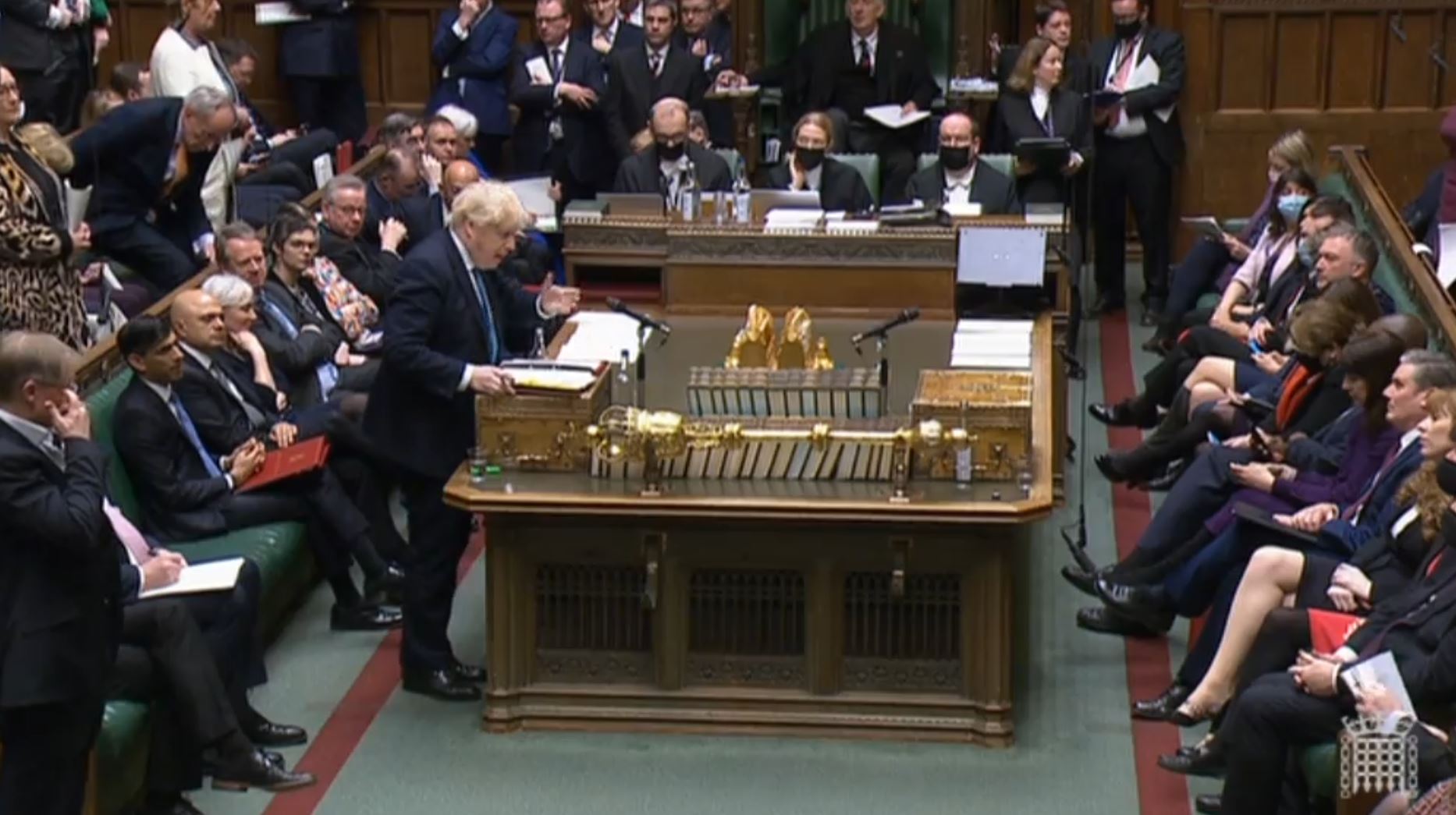
The United Kingdom will provide Ukraine with more military support, including defensive weapons, according to British Prime Minister Boris Johnson.
“In light of the increasingly threatening behavior from Russia and in line with our previous support, the UK will shortly be providing a further package of military support to Ukraine. This will include lethal aid in the form of defensive weapons and non-lethal aid,” Johnson told lawmakers in UK parliament Wednesday.
Johnson also stressed that financial sanctions imposed by the UK will stop Russia “from raising sovereign debt” and will also stop Russian companies from “clearing in sterling and dollars on international markets.”
The UK on Tuesday said it is set to sanction members of the Russian parliament who voted in favor of recognizing the independence of two breakaway regions in eastern Ukraine. Those sanctions are in addition to an earlier raft of measures against five Russian banks and three wealthy individuals announced by the British Prime Minister. Russia has called the sanctions “illegal.”
CNN’s Darya Tarasova and Samantha Beech contributed reporting to this post.
Macron thought Putin was “stiffer and more “isolated” during recent Moscow meeting
From CNN’s Joseph Ataman in Paris
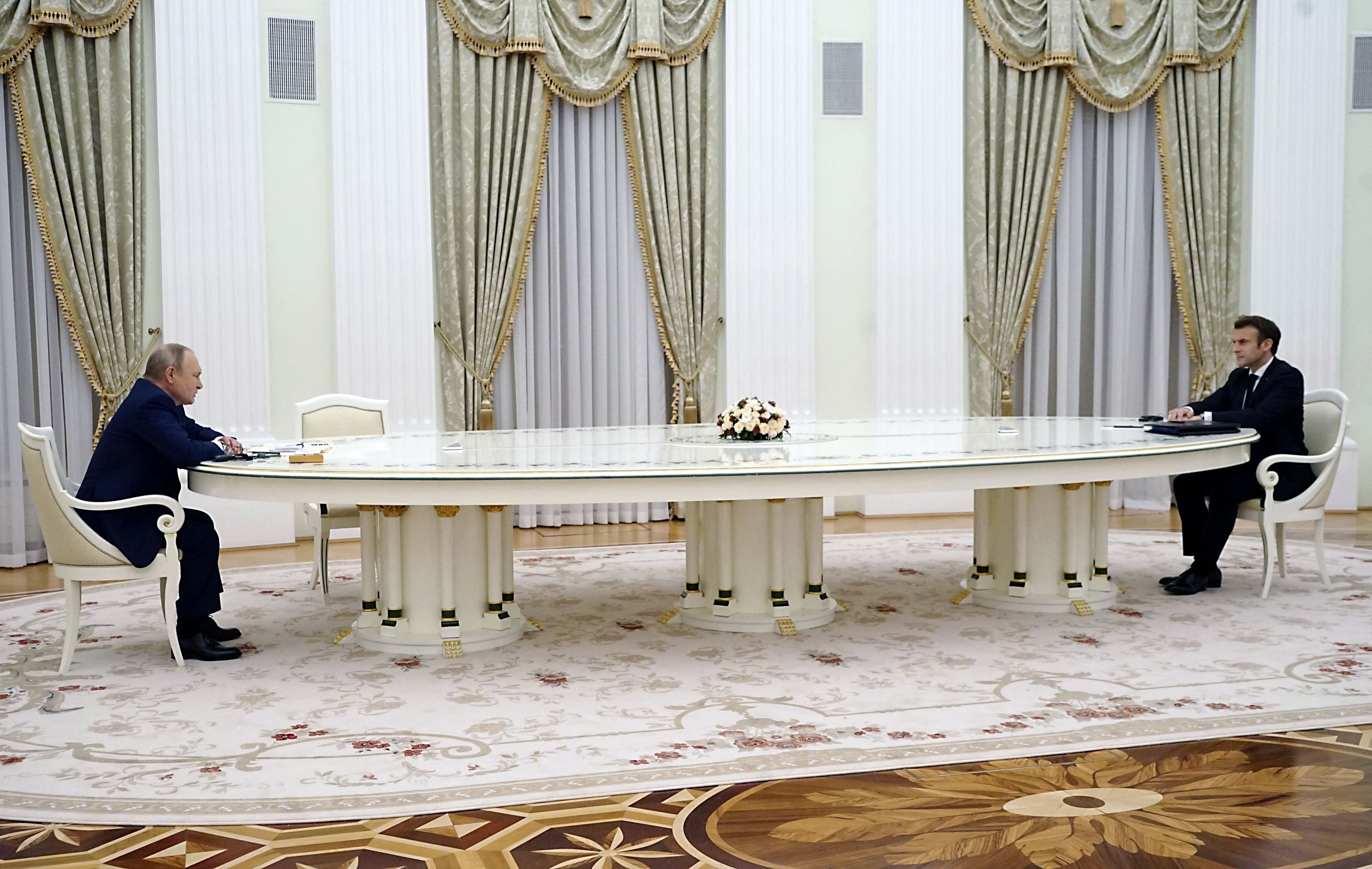
French President Emmanuel Macron recently offered rare insight into the demeanor of his Russian counterpart Vladimir Putin, who he said had “changed” in the two years since the leaders previously met in person, according to an Elysée source.
Addressing journalists in Paris Monday following a televised national address by the Russian President, the source recounted what Macron had noticed during the leaders’ February 7 meeting in Moscow.
Macron had told reporters on the plane back from the trip that he found Putin to be “stiffer and more isolated” when they met face to face in the Russian capital, the source said, adding that the assessment aligned with the impression Putin gave in the rambling speech announcing the deployment of so-called “peacekeeping” troops into eastern Ukraine.
“On the plane, President Macron had explained to the journalists present that the Putin he had met in the Kremlin was no longer the same as the one he had seen in December 2019 — their last meeting.
“That Macron had found at the Kremlin a man who was at the same time stiffer, more isolated and who, basically, had gone into a sort of drift that was both ideological and security-minded and who, in a certain way, was borne out today [in the speech],” the source said.
Macron has emerged as Europe’s key broker in diplomatic efforts to avert war in Ukraine in recent weeks. The pair spent more than five hours locked in head-to-head talks during their meeting in Moscow this month.
Macron said at the time that he and Putin were able to find “points of convergence” over the crisis and that it was “up to us to agree, jointly, concrete and specific measures to stabilize the situation and to de-escalate tensions.”
What you need to know about the Ukraine-Russia crisis
Western leaders are warning that Russia has put in motion its plan to launch a full invasion of Ukraine, while announcing the first set of sanctions on Moscow.
President Joe Biden described events now underway in Ukraine as “the beginning of a Russian invasion,” as he unveiled tough new measures to punish Moscow on Tuesday.
British Prime Minister Boris Johnson said Russia is “bent” on a “full scale invasion” of Ukraine, while German Chancellor Olaf Scholz said “Putin has built up enough troops along the Ukrainian borders to really be able to fully invade the country.”
Here’s what you need to know.
What did Russia do? On Monday, Russian President Vladimir Putin ordered troops into Donetsk and Luhansk — two separatist-held pro-Moscow regions of eastern Ukraine — in what the Kremlin called a “peacekeeping” mission. The move came just hours after he signed decrees recognizing the independence of the regions.
Multiple US and Western officials cautioned this could serve as the opening salvo of a larger military operation targeting Ukraine. More than 150,000 Russian troops now encircle Ukraine on three sides, according to estimates from US and Ukrainian intelligence officials.
How has Ukraine responded? Ukraine’s response to a potential attack “will be instant,” Oleksiy Danilov, Secretary of Ukraine’s National Security and Defense Council said Wednesday.
A State of Emergency is set to be introduced across all parts of Ukraine under government control, which will last for at least 30 days.
But the government has not closed the door to a possible solution. On Tuesday, Ukrainian President Volodymyr Zelensky said he is still pursuing diplomacy as a way out of the crisis; reservists would be called up for military training, he said, but there will be no general mobilization of armed forces.
“We desire peace and calm but if we are quiet today then tomorrow we will disappear,” he said in an address to the nation.
How has the world reacted? Russia’s actions have been strongly condemned by many nations, with Western leaders imposing new sanctions on Tuesday and cutting off a key pipeline with Russia.
Biden announced the United States will sanction Russia’s financial institutions and oligarchs. The European Union also sanctioned 351 Russian lawmakers who voted to recognize the breakaway regions, and the United Kingdom announced sanctions against five Russian banks and three Russian oligarchs.
Also on Tuesday, Germany said it halted certifying an $11 billion 750-mile pipeline that connects Russia directly to Germany. The Nord Stream 2 project was completed in September but has not yet received the final green light from German regulators. Without that, natural gas cannot flow through the Baltic Sea pipeline from Russia to Germany.
On Wednesday, Japan and Australia joined the list of countries to impose sanctions on Russia, Donetsk and Luhansk.
But China, which for years has maintained a robust friendship with Russia, criticized Western sanctions. A Foreign Ministry spokesperson said Wednesday they are “never a fundamental and effective way to solve problems.”
State of emergency to be introduced across Ukraine
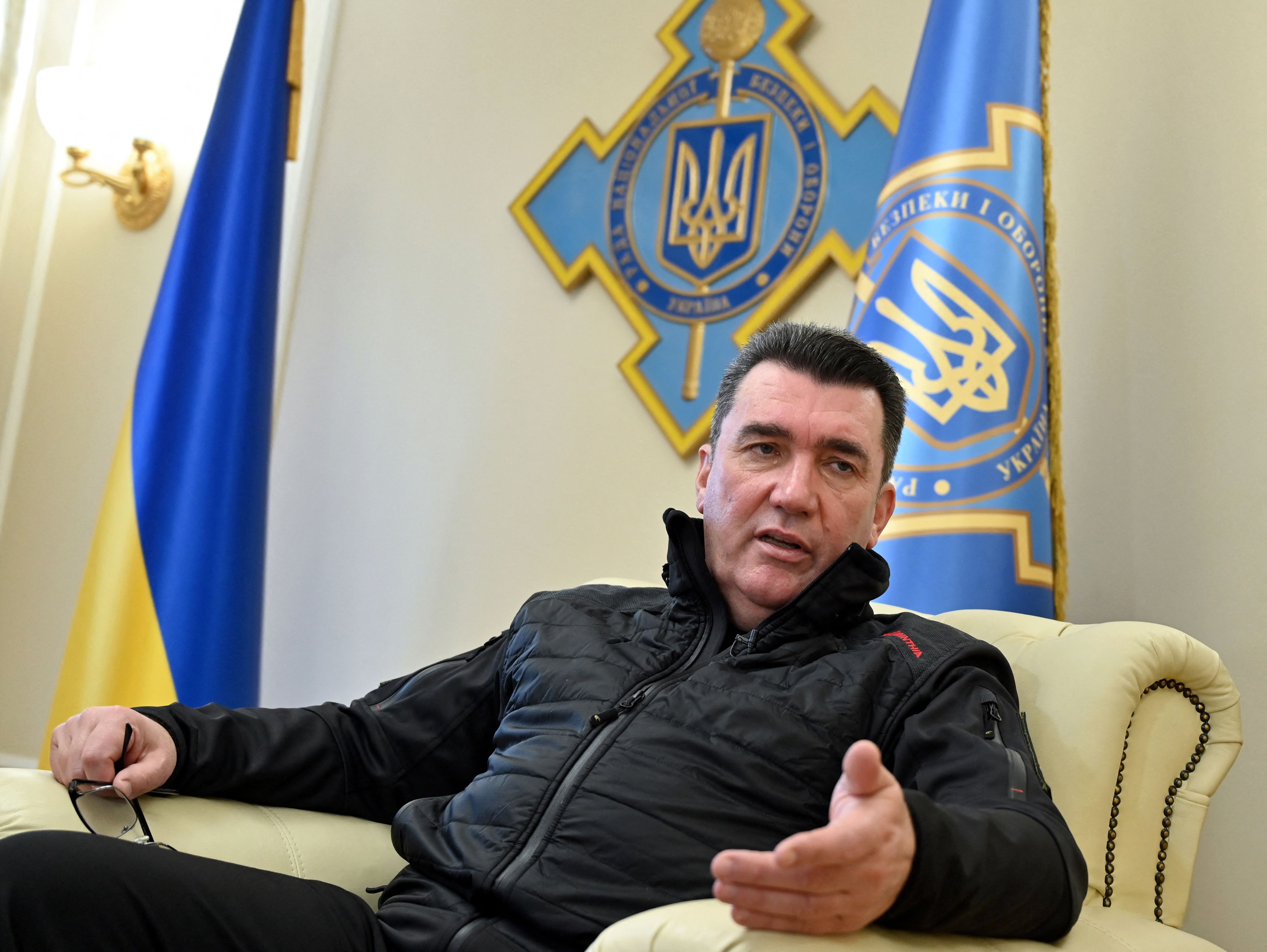
A State of Emergency is to be introduced across all parts of Ukraine under government control, the country’s National Security and Defense Council announced Wednesday.
The measure is expected to be approved by the Ukrainian Parliament within 48 hours and would last for 30 days, with the possibility of being extended for an additional 30 days.
“Across the territory of our country, apart from Donetsk and Luhansk, a State of Emergency will be introduced,” Oleksiy Danilov, Secretary of Ukraine’s National Security and Defense Council said Wednesday.
“The main aim of the Russian Federation is to destabilize Ukraine from inside and to achieve its objective. To prevent this from happening, we decided today and made this decision today,” he added.
Speaking during a press briefing in Kyiv, Danilov said the State of Emergency would include “strengthening public order and security at critical infrastructure facilities” and tightening inspections on certain transportation movements.
“Depending on the local circumstances, there may be stronger or milder measures to ensure the security of our country,” he added. “These are all preventative measures, in order to preserve peace and calm in the country and for the economy to continue to work.”
Soccer authorities “monitoring” Ukraine situation ahead of St. Petersburg Champions League final
From CNN’s Aleks Klosok and Sammy Mngqosini in London
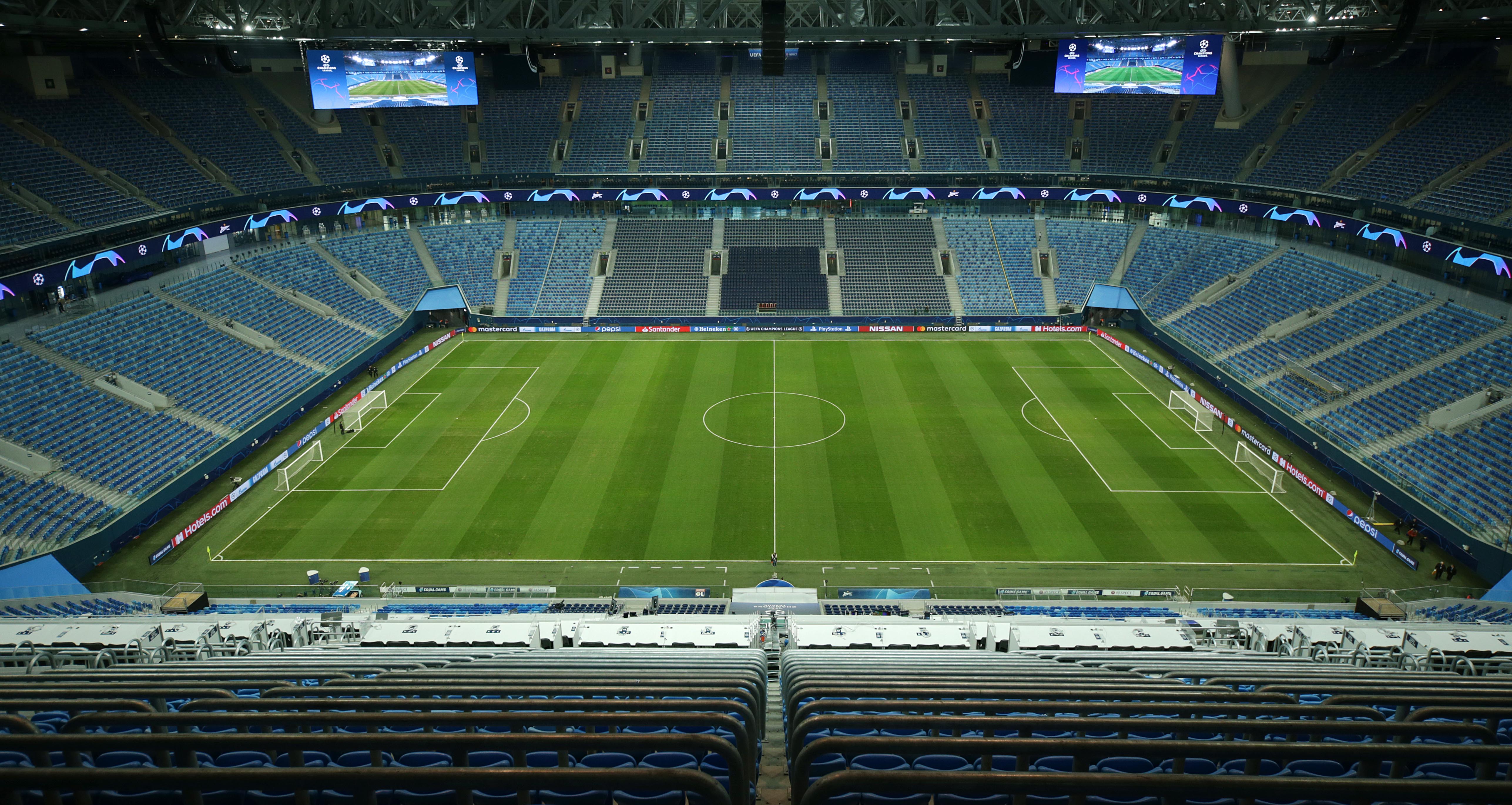
Soccer governing bodies UEFA and FIFA say they are “monitoring the situation” as the escalating Russia-Ukraine crisis threatens to impact several key European and international matches that due to take place in both countries.
It comes after Western nations announced a tranche of sanctions against Moscow in a bid to deter further aggression after Russian President Vladimir Putin ordered the deployment of military forces into eastern Ukraine.
St. Petersburg is poised to stage the UEFA Champions League Final — the biggest match in men’s European club football — on Saturday, May 28.
The Krestovsky Stadium, which is sponsored by Russian state-owned company Gazprom, previously hosted matches at the 2018 FIFA World Cup and UEFA Euro 2020.
“With regard to the 2022 UEFA Champions League final in St. Petersburg, we would like to inform you that UEFA is constantly and closely monitoring the situation and any decision would be made in due course if necessary. UEFA has no further comments to make at present,” a UEFA spokesperson told CNN Tuesday.
UK Foreign Secretary Liz Truss said Wednesday that English teams should boycott May’s final as a result of Russia’s actions.
“If I were on an English team, I would boycott it,” Truss told British radio station LBC.
“I would personally not want to be playing in a football match in St. Petersburg given what the Putin regime is doing,” added Truss.
On the international scene, Russia are scheduled to host Poland in a men’s 2022 FIFA World Cup qualifier playoff semifinal on March 24. That game is due to be held at the VTB Arena in Moscow.
FIFA also told CNN it is “monitoring the situation.”
China criticizes Western sanctions on Russia
From CNN’s Beijing Bureau
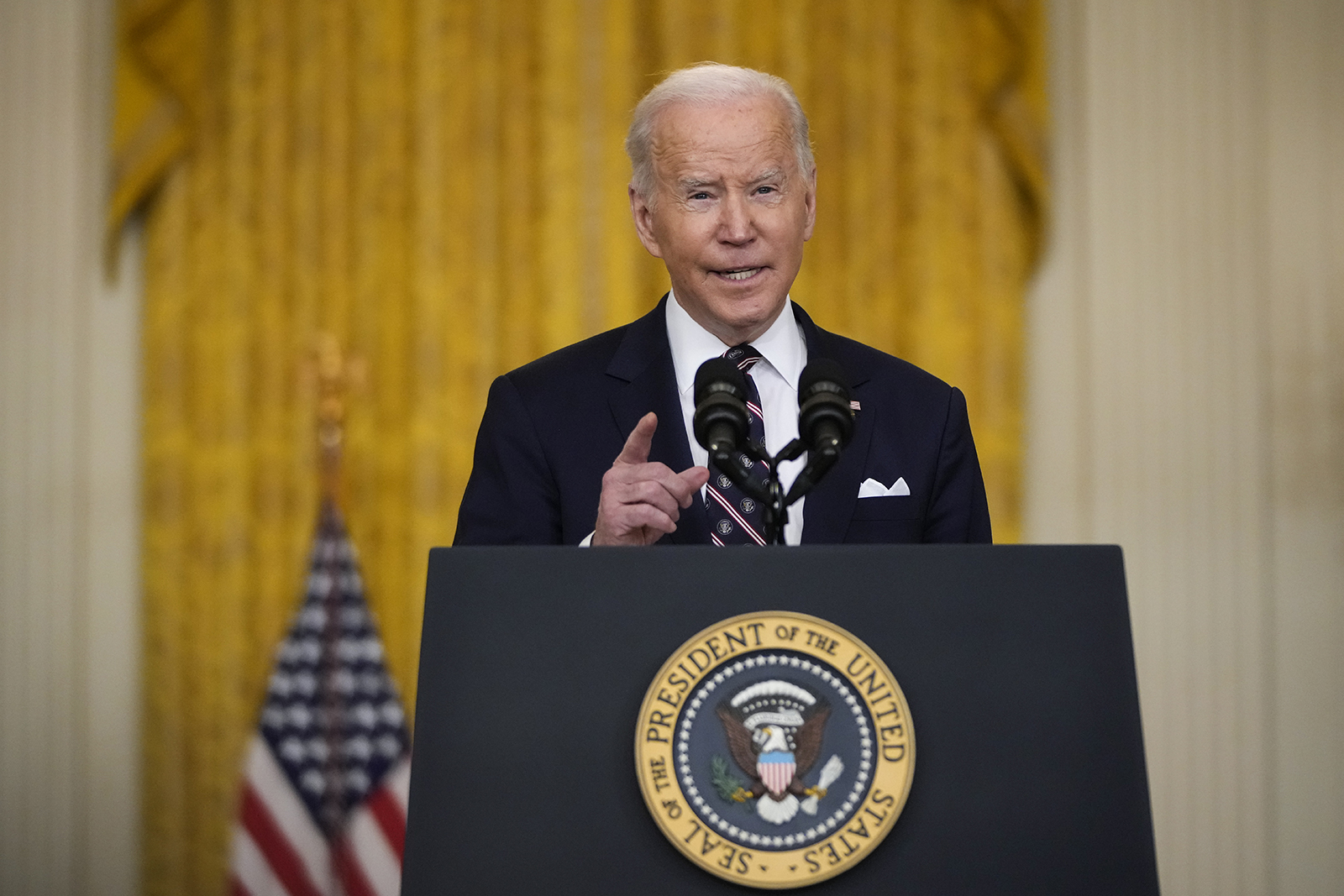
China has criticized Western sanctions on Russia and said it will not follow suit, calling the measures “never a fundamental and effective way to solve problems” and saying it “always opposes any illegal unilateral sanctions.”
On Tuesday, President Joe Biden said the United States will sanction Russia’s financial institutions and oligarchs after Russian leader Vladimir Putin ordered troops into separatist-held parts of eastern Ukraine. The United Kingdom, European Union, Canada, Australia and Japan also announced fresh sanctions on Russia.
When asked in the Foreign Ministry’s daily briefing whether China would consider following suit, Foreign Ministry spokesperson Hua Chunying responded by telling the reporter, “You obviously lack a basic understanding of Chinese government policy.”
“We believe that sanctions are never the fundamental and effective way to solve problems. China always opposes any illegal unilateral sanctions,” Hua said, reiterating that the two parties should seek a resolution through dialogue and negotiation.
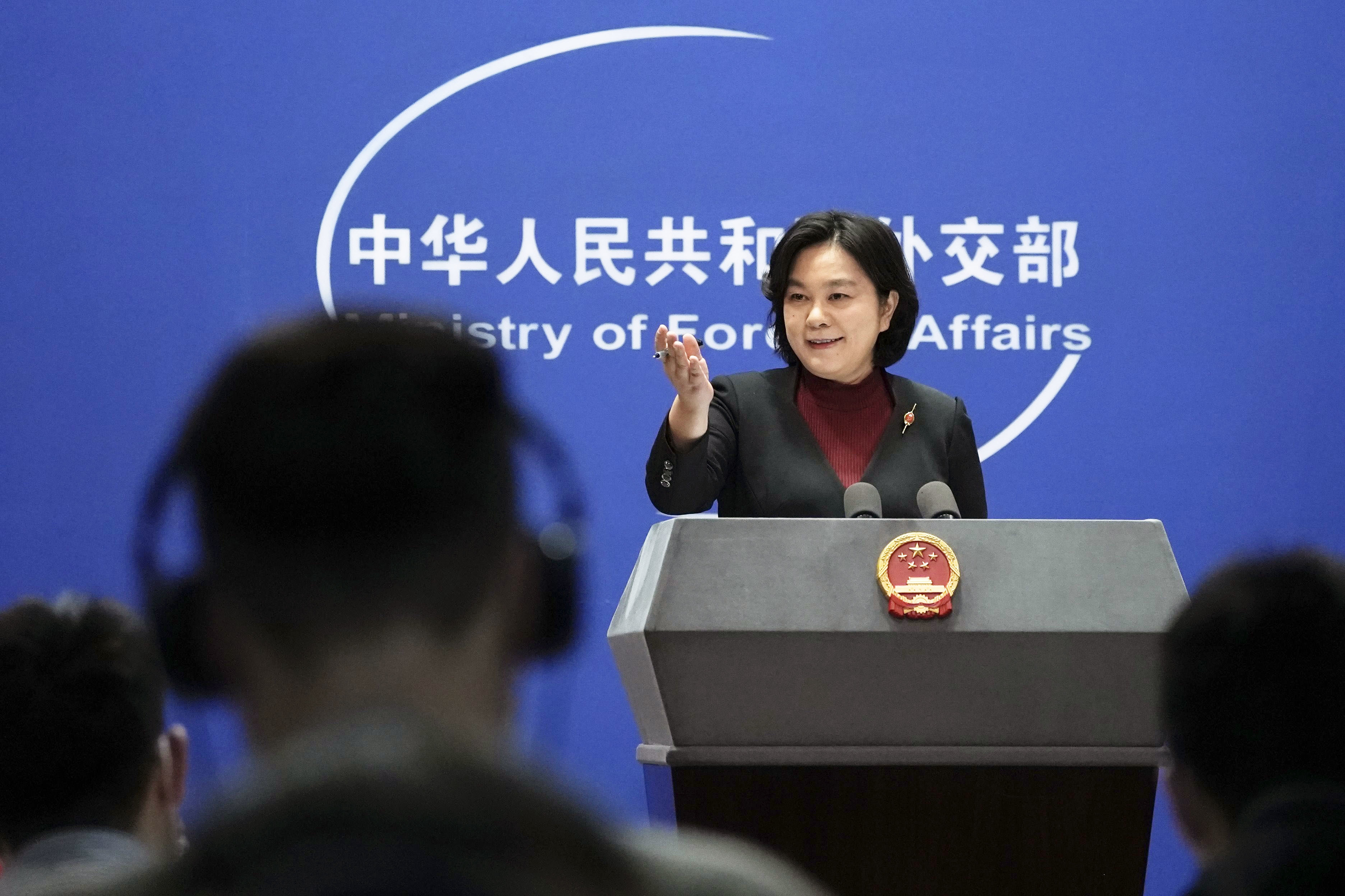
In her response, Hua also posed questions of what has been gained by previous US imposed sanctions on Russia, asking reporters: “Have they solved the problem? Is the world better off because of US sanctions? Will Ukraine’s problems be resolved automatically by the imposition of US sanctions against Russia? Will Europe’s security be more secure as a result of US sanctions against Russia? I think we should try to solve the problem through dialogue and negotiation.”
She noted that previous sanctions imposed by the US “have caused serious difficulties to the economy and people’s livelihood of the countries concerned,” adding that on Ukraine, the US should “not undermine the legitimate rights and interests” of China and “other parties.”
Currently, the US maintains sanctions on Russia that were imposed in response to its invasion of Ukraine in 2014. Other penalties have been imposed over issues including cyberattacks, election meddling, weapons proliferation and illicit trade with North Korea.
The Russia-China relationship: China is navigating a complex position as it attempts to balance a robust friendship with Russia with its practiced foreign policy of staunchly defending state sovereignty.
On Feb. 14, China’s Foreign Ministry spokesperson Wang Wenbin said the embassy in Ukraine is “working normally” and continues to provide consular protection and assistance to Chinese citizens and enterprises in Ukraine.
UK foreign secretary: No “full” evidence Russia has sent troops to eastern Ukraine
From CNN’s Amy Cassidy
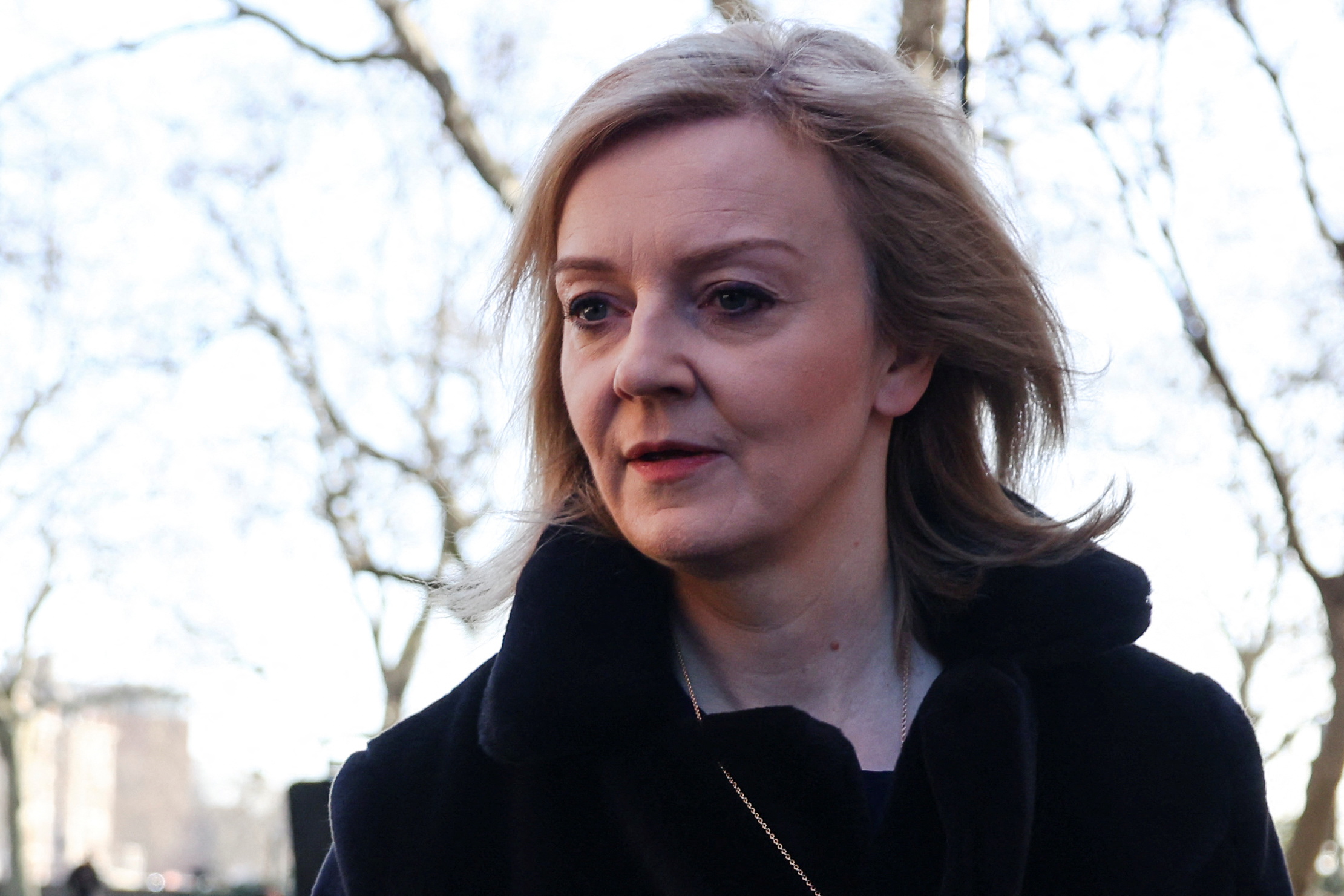
The United Kingdom has not seen “full” evidence Russia has sent troops to eastern Ukraine, British Foreign Secretary Liz Truss told Sky News on Wednesday.
“We’ve heard from Putin himself that he is sending in troops,” she said. “We don’t yet have the full evidence that that has taken place. What we are expecting, and this has been confirmed by the Americans as well as by the United Kingdom, is a full-scale invasion, including potentially of Kyiv.”
Without providing evidence, both the European Union’s Foreign Policy Chief Josep Borrell and NATO Secretary General Jens Stoltenberg said Tuesday that Russian troops have entered the pro-Moscow breakaway regions of Luhansk and Donetsk.
CNN has been unable to independently verify this.
Truss added the UK and the international community is prepared to “go further” with economic sanctions should a “full-scale invasion” take place, which could be in any part of Ukraine, not just the capital city of Kyiv.
“We’ve been very clear that we’re going to limit Russian access to British markets. We’re going to stop the Russian government raising sovereign debt in the United Kingdom. And we’re very united with our allies in the way that these sanctions packages are working,” she said.
Some context: Russian President Vladimir Putin signed decrees recognizing Luhansk and Donetsk as independent on Monday. The decrees said that Russian so-called peacekeeping forces would be deployed in the two separatist-held pro-Moscow regions of eastern Ukraine.
Separatists in Luhansk and Donetsk have long had substantial backing from the Kremlin, with US, NATO and Ukrainian officials saying that Moscow supplies them with advisory support and intelligence, and embeds its own officers in their ranks.
Source: https://www.cnn.com/europe/live-news/ukraine-russia-news-02-23-22/h_bfa9747bcf451d713ab307d66c763725

















